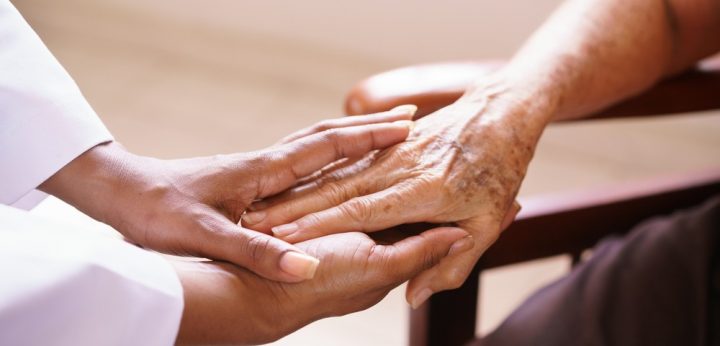Helping Neuropathy Patients Cope with Loneliness

While patients with familial amyloid polyneuropathy are struggling with the pain of peripheral neuropathy, they may also be battling loneliness. A sense of isolation might stem from limited mobility and a feeling of being burdensome to those around them.
The holiday season has come and gone and as a new year begins it’s a good time for friends, family, and caregivers of neuropathy patients to ensure that their loved ones feel appreciated and included. Here are some ways that feelings of loneliness can be addressed throughout the year.
Limited mobility
The pain caused by peripheral neuropathy symptoms can be debilitating, and limited mobility can lead to a more sedentary lifestyle. As a result, patients may feel that they can’t keep up with friends and family. Additionally, friends and caregivers may move at an uncomfortably fast pace, causing patients to feel self-conscious about their impaired mobility. Slow down and allow your loved ones to keep up.
Being proactive
My mother-in-law spends most of her time at home with her dogs. She gets around the house with the assistance of a motorized wheelchair or walker. When her husband is at work, family members come over to keep her company.
Her solution to loneliness is to host her immediate and extended family for major holidays such as Thanksgiving and Christmas. She often invites friends and family over to spend time with her and assist with tasks that involve heavy lifting or physical exertion.
Combating loneliness
Lonely patients may experience feelings of inadequacy and increased awareness of their mortality. Research suggests that loneliness is bad for heart health and a strong predictor of premature death.
Caregivers should offer both physical and emotional support to their patients. Friends and family can make accommodations in advance for loved ones with mobility limitations when planning outings. By demonstrating consideration of their needs, patients will know that their loved ones have their best interests in mind.
***
Note: FAP News Today is strictly a news and information website about the disease. It does not provide medical advice, diagnosis, or treatment. This content is not intended to be a substitute for professional medical advice, diagnosis, or treatment. Always seek the advice of your physician or other qualified health provider with any questions you may have regarding a medical condition. Never disregard professional medical advice or delay in seeking it because of something you have read on this website. The opinions expressed in this column are not those of FAP News Today or its parent company, Bionews Services, and are intended to spark discussion about issues pertaining to familial amyloid polyneuropathy.







Leave a comment
Fill in the required fields to post. Your email address will not be published.